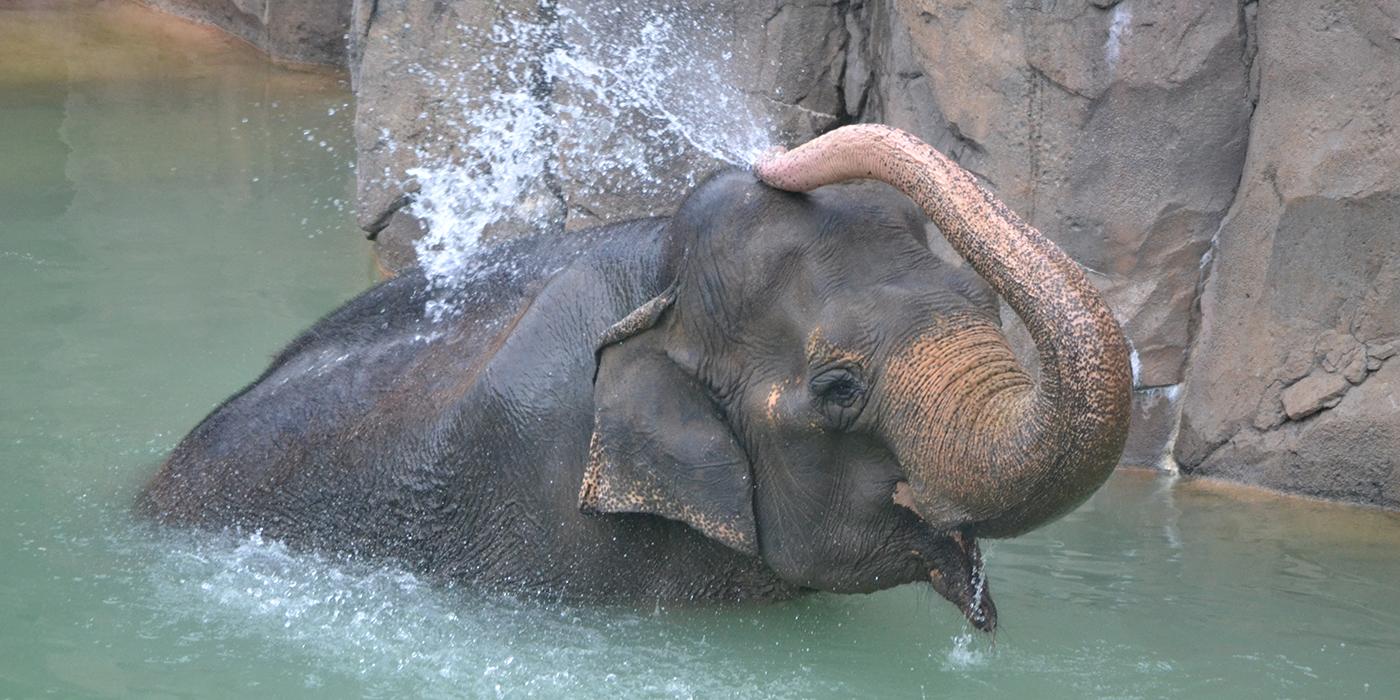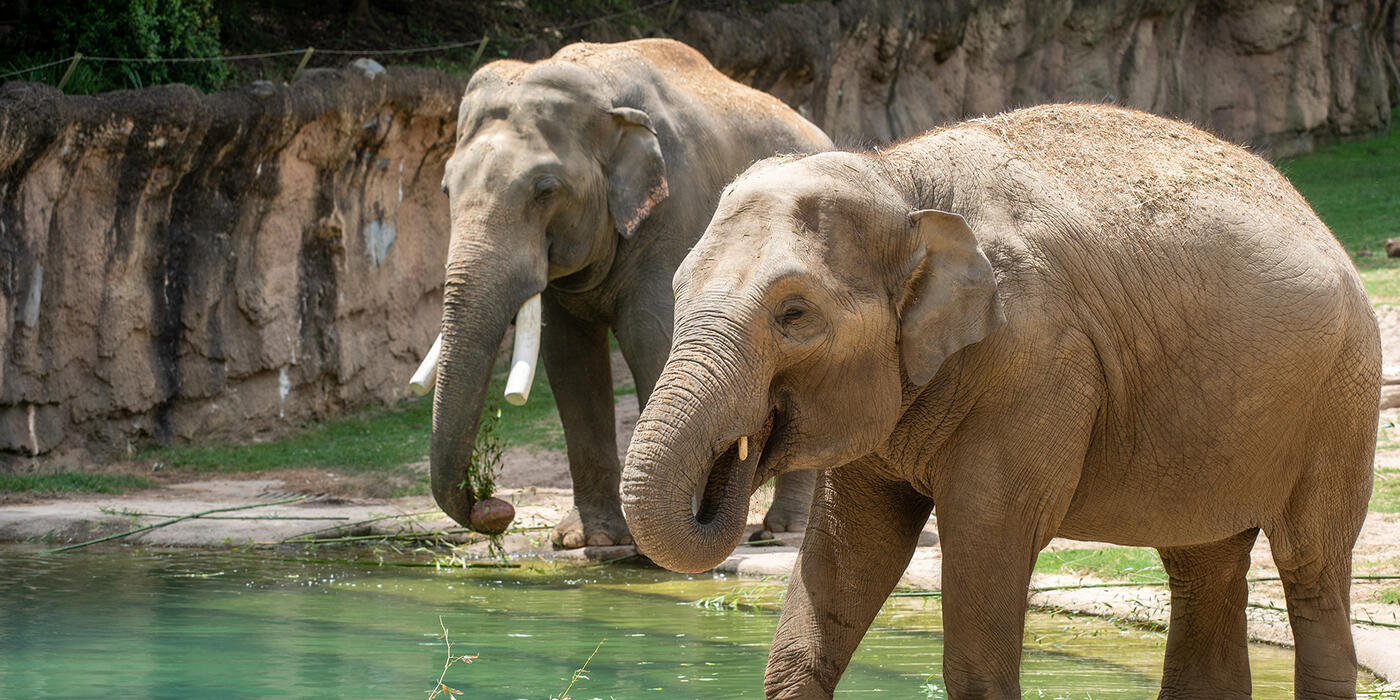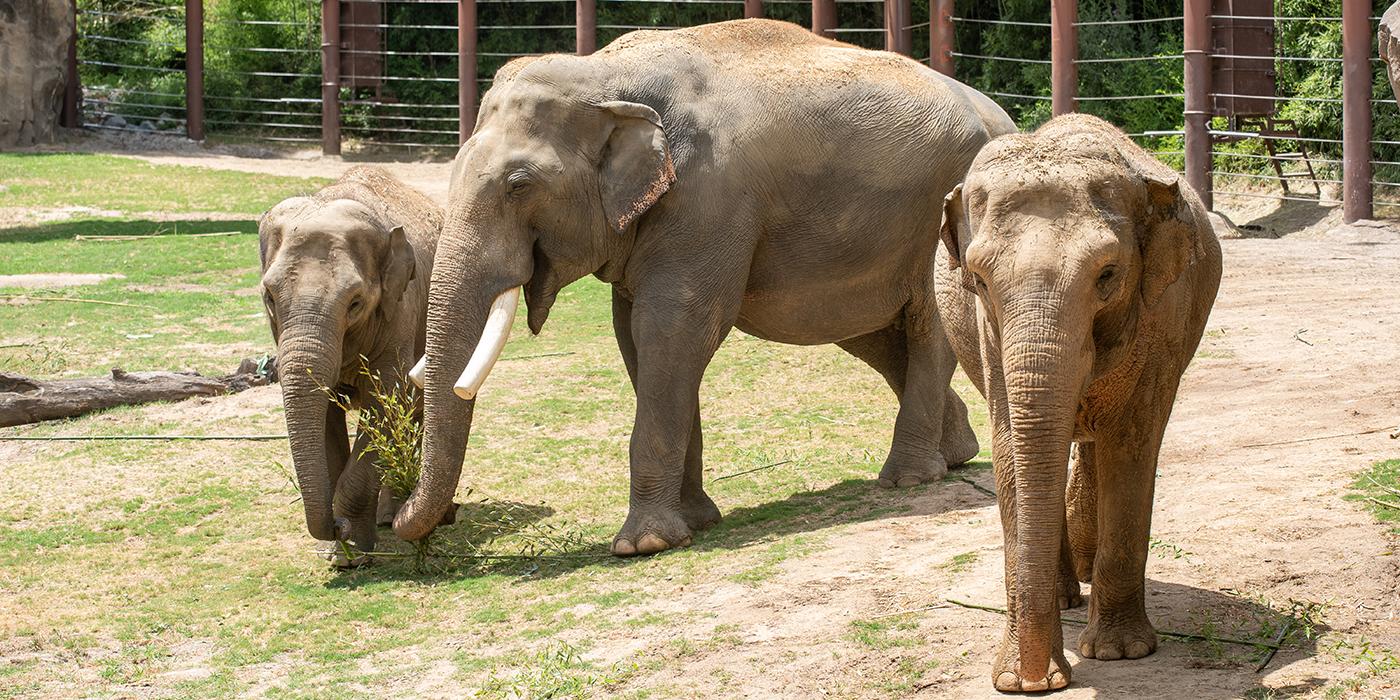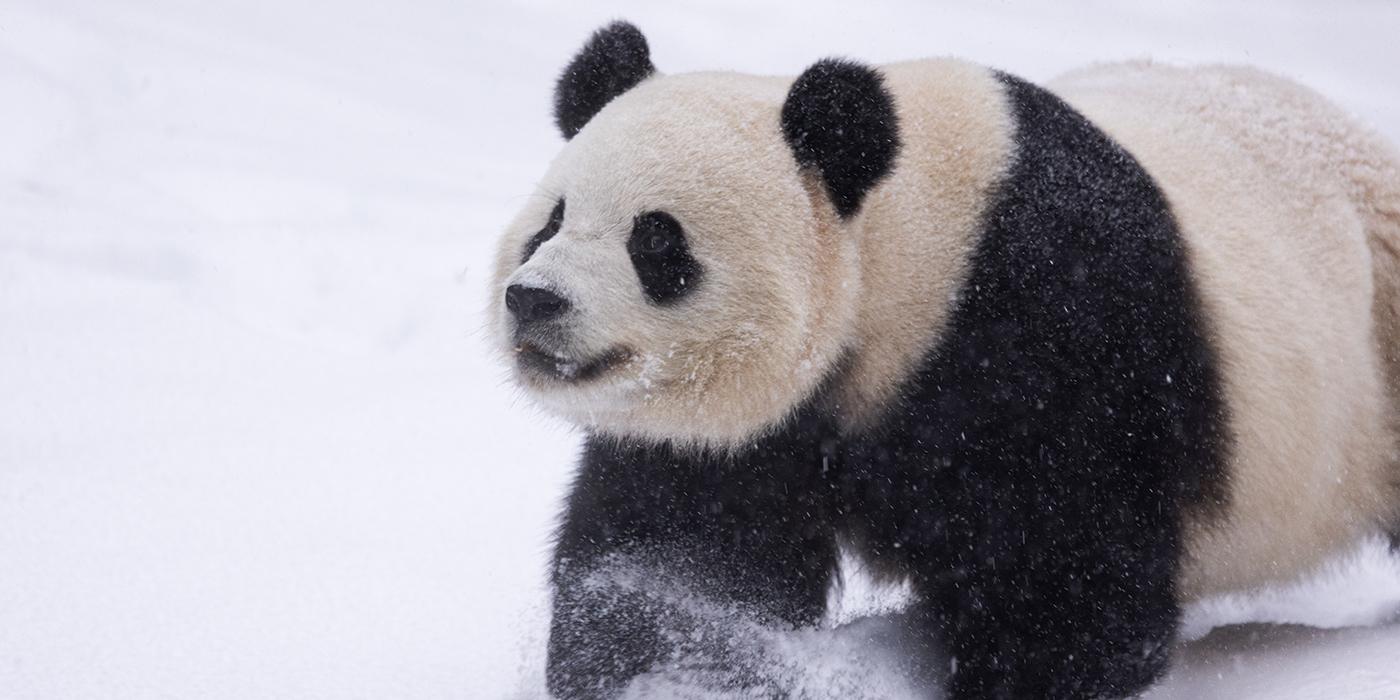Decoding an Elephant’s History to Save Its Future
Smithsonian's National Zoo and Conservation Biology Institute scientists are working to understand the family trees of elephants, as well as answer questions about animal health. Sometimes the best way to manage an animal’s health in the present is to look into the past. That’s what Natalia Prado and her team of Smithsonian scientists are planning to do with Asian and African elephants at zoos across the country, including those at the Smithsonian’s National Zoo.
The family history of every animal is unique and leads to its distinct genomic makeup. Prado and her team will work to generate the genomic tools needed to decode elephants’ genetic histories across the United States, to address fundamental questions about individual and population health. With the information they receive, the team will develop the tools necessary to learn about each elephant’s family tree. This information could lead to a better understanding of numerous conditions that elephants exhibit in human care, including infertility, foot and joint problems, and susceptibility to diseases such as elephant endothelial herpes virus (EEHV) and tuberculosis.
Over the next year, the scientists will map the entire genomes of nine elephants, including five from the Zoo’s herd — Kandula, Shanthi, Ambika, Bozie and Maharani. The success of this mapping will set the groundwork for the development of tools needed to screen about 300 elephants for shared genetic traits.
If Smithsonian scientists can disentangle the effects of environment versus genetics, or nature versus nurture, using these genomic tools, it could make a world of difference for elephants not just in human care but also in the wild.
This research is made possible by a FONZ Conservation Grant — funded by the Round Up for Conservation Program. Click here to learn how you can help.
Related Species:



